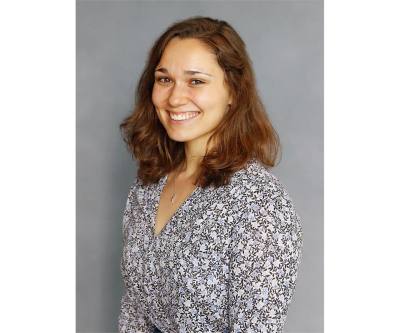When comparing the projected close-out numbers of the fiscal year 2019-20 budget to the proposed 2020-21 version, general fund revenues are forecasted to increase by 6% and property tax revenue by 13%, while sales tax revenue and development permit revenues are estimated to decrease by 5% and 23%, respectively.
These revenue fluctuations, Breland reiterated, are made when comparing the close-out numbers of fiscal year 2019-20 and not the numbers initially approved for the current fiscal year's budget. The changes in close-out numbers, Breland said, are largely attributed to the onset of the coronavirus.
Regarding property taxes, the appraised taxable value for fiscal year 2019-20 is listed as $6.198 billion, while fiscal year 2020-21 is expected to rise to $6.778 billion, per city documents. The increased dollar amount marks a 9% change.
The average home value for fiscal year 2019-20 was recorded as $254,485, while fiscal year 2020-21's amount is projected as $257,564, or a 1% increase. The estimated average tax bill, based on city taxes only, is anticipated to decrease by 0.2% from $1,266 to $1,264, respectively.
Staying conservative with sales tax revenue estimations for fiscal year 2020-21, Breland said the proposed budget estimates revenues around $11 million, a slight decreased compared to fiscal year 2019-20 figures.
On staff resources, Breland said she has limited requests for new positions among city staff and has proposed two new full time staff positions be added to the upcoming fiscal year's budget. Regarding staff pay, Breland also proposed a step-based compensation program for sworn staff, as well as 3% merit increases for non-sworn staff.
With regards to the city's tax rate, Breland said she and staff are currently analyzing two different figures. The tax rate for fiscal year 2019-20 was approved as $0.4976 per $100 of taxable value. Based on two different scenarios proposed—a 3.5% increase or an 8% increase—Breland said both would trigger a decrease in the city's tax rate, as well as the average home value of taxes paid on citizens' behalf.
Due to Senate Bill 2, the highest increase in a city's tax rate allotted for, without triggering calls for an election, is 3.5%. However, Breland and city staff said that due to the coronavirus pandemic, the Texas Municipal League and related organizations suggested an 8% increase would be permitted if any portion of the city is located in an area declared a disaster area during the current fiscal year, as declared by Gov. Greg Abbott or President Donald Trump.
July 1 is the deadline for city staff to submit the proposed fiscal year 2020-21 budget to council, per city charter. Council work sessions are available on July 14 and July 28 to discuss the budget, as needed.
If the city's tax rate is proposed at or below a 3.5% increase, Aug. 11 will be the city's first public hearing on the budget, with council set to adopt it on Aug. 25. If a tax rate above 3.5% is considered by council based on outlined emergency provisions, a public hearing on the budget will be held Aug. 4 with a subsequent adoption of said budget Aug. 11.
Editor's note: Further clarification has been provided on disaster declarations as related to Senate Bill 2.





